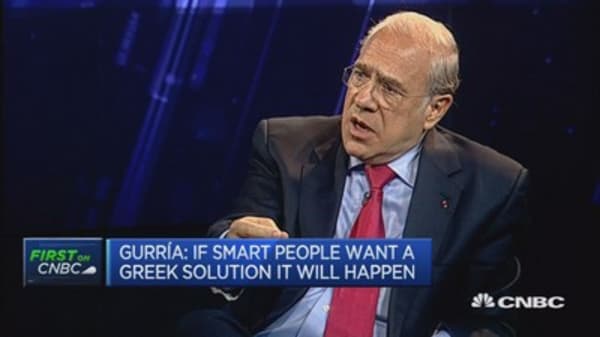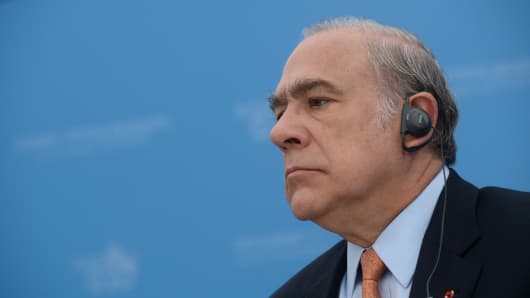Ahead of the weekend's resounding "no" vote out of Athens, the main Greek stock market had a really surprising second quarter: it was up by around 3 percent, outperforming the main European indexes such as the U.K.'s FTSE, down almost 3 percent; Germany's DAX, down almost 8 percent; and the French CAC, down almost 4 percent.
Going back to the beginning of 2015, however, Greek equities gave a more accurate of the country's economic turmoil, showing a fall of close to 3 percent, while the FTSE, DAX and CAC were up by 0.3 percent, 12.5 percent and 13.5 percent respectively.
Now we need to look ahead at the implications of the weekend's referendum and the resignation of fiery finance minister Yanis Varoufakis.
Greece is a member of the Organization of Economic Co-operation and Development – and the only OECD country not to see an increase in gross domestic product per capita between 2007-2014.
Regardless of the mess the country has got itself into, it's hard to blame the Greek people for not wanting more austerity. Also, while Greek Prime Minister Alexis Tsipras and Varoufakis may be at fault for the chaotic negotiations with its creditors, they are not at fault for landing the country in its terrible situation to begin with.




